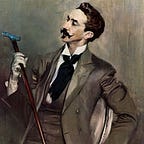Of Pig and Men: Thomas Coop-Phane’s Le Procès du cochon
Judging an animal may seem anthropocentric and absurd to us, but to some Europeans before the Enlightenment it seemed like the right thing to do.
Thomas Coop-Phane’s Le Procès du cochon (2019) is a brief novel that resembles a Roman myth or a medieval allegorical play more than the latest avant-garde or page-turner bestseller. Despite a form that evokes old literary forms, however, the book’s subject could not be less relevant. As the title hints, the book follows a pig’s trial after he kills an infant in an unidentified village in an unidentified moment in time. Judging an animal may seem anthropocentric and absurd to us, but to some Europeans before the Enlightenment it seemed like the right thing to do. In treating a pig’s trial with a serious somberness that evokes Camus’s L’Étranger, Coop-Phane led me to ask myself a series of questions: If a pig is on the stand, does that mean he is on par with humans? Is that, in a sense, radical? Or, on the contrary, did Coop-Phane use a nonhuman animal to expose the cruelest acts committed by humans? Regardless of where one stands in recent academic debates that emphasize the agency of nonhumans (think, for instance, of Graham Norton and his fellow object-oriented ontologists or of Peter Singer’s many treatises on animal rights), Coop-Phane’s novel wants us to think harder about the status quo. How did we — followers of rituals, residents of neatly organized cities, consumers of items seamlessly provided to us by intricate but well-managed supply chains — get here?
The novel starts following tan ordinary pig that acts on instinct. His instinct told him to eat a child, so he did. Coop-Phane’s narrative makes it clear that the pig does not possess reasoning as humans do, so expecting it to behave as if he did is comedic. On the other hand, by seeing people imprison the pig and exert the cruelest punishment on him, it is possible to realize that even if they do not feel like us, nonhuman forms of life deserve respect and care. The absurdity not only reveals the injustice nonhumans are subjected to by humans but also the fact that humans themselves inflict harm upon one another for reasons that culturally seem logical but deserve some pause. Prison abolitionists may find in this book a powerful pamphlet for their cause; the pig’s detention, trial, and execution expose just how vicious the justice system is. Seeing people cheer as an animal with no understanding of the concept of murder is hanged is strange and ethically dubious, and hopefully leads people to the realization that treating human inmates with scorn and cruelty is just as ethically dubious.
I can’t assure that Coop-Phane personally believes in environmentalism, animal rights, and prison abolition. I can, however, assure that he would love if this odd tale to lead to critical thinking. Humans judged, imprisoned and slaughtered a pig as if he were a man: What does that say about the category of “pig” and that of “human,” in this nondescript past and now? What could a society that thinks of justice in terms other than retribution look like? Is it even achievable? Like Orwell’s Animal Farm (1945), Coop-Phane works better as a critique than as a solution to these queries. Nonetheless, critique is as needed as ever in a world still characterized by oppression.
